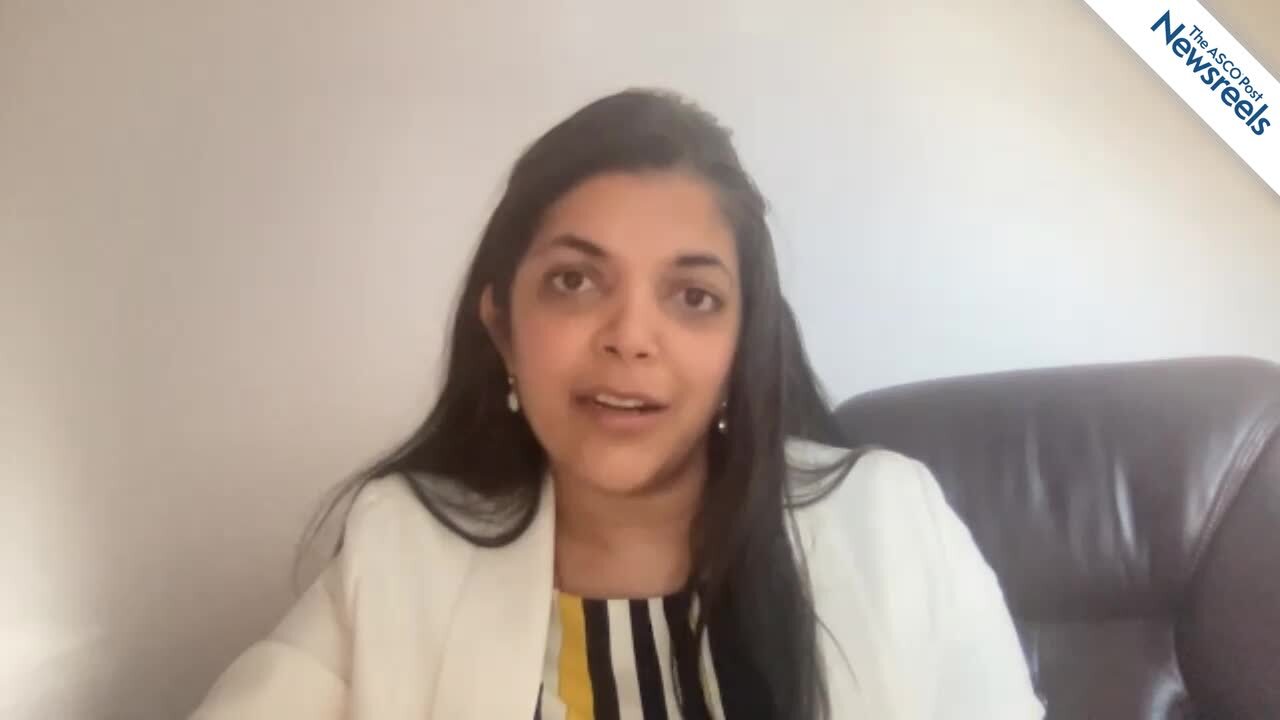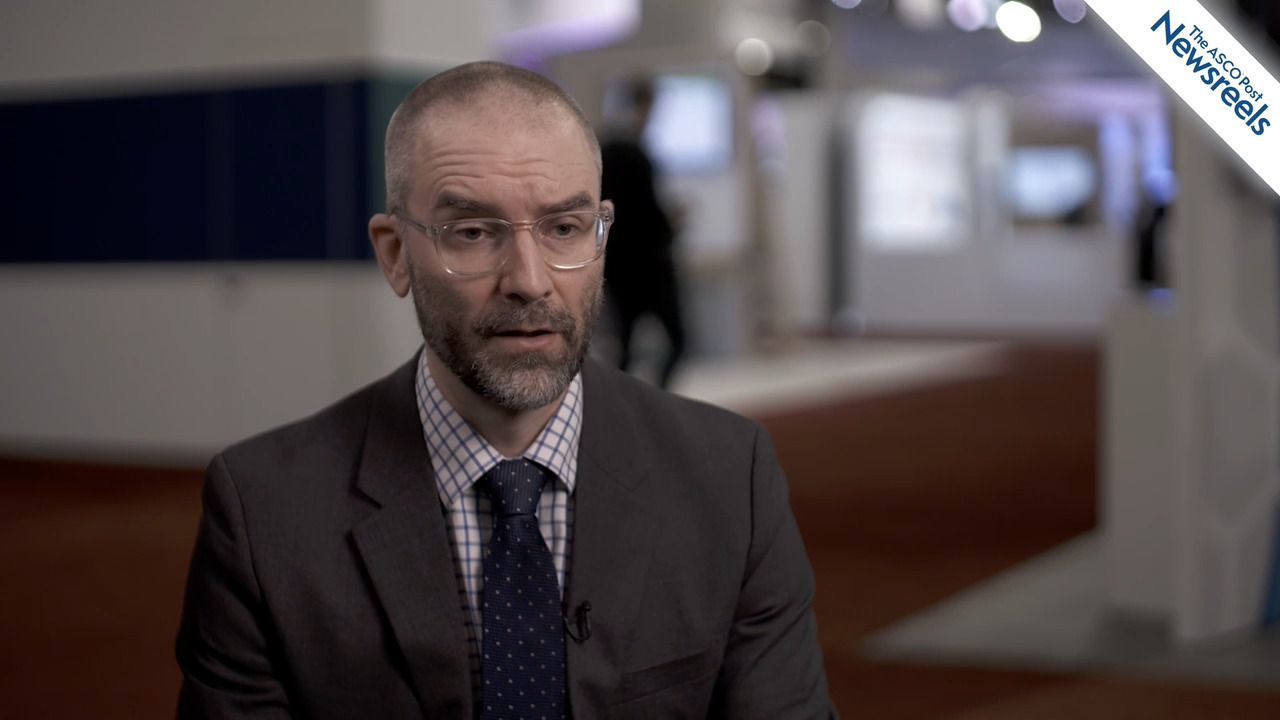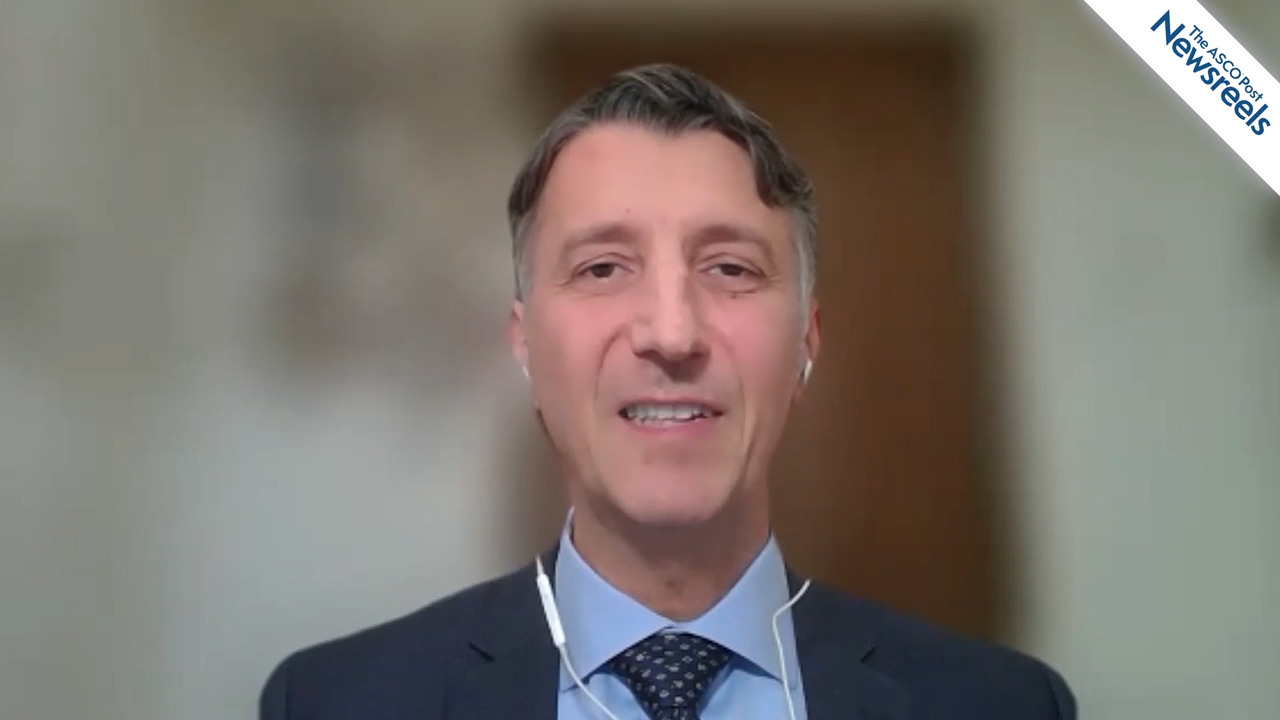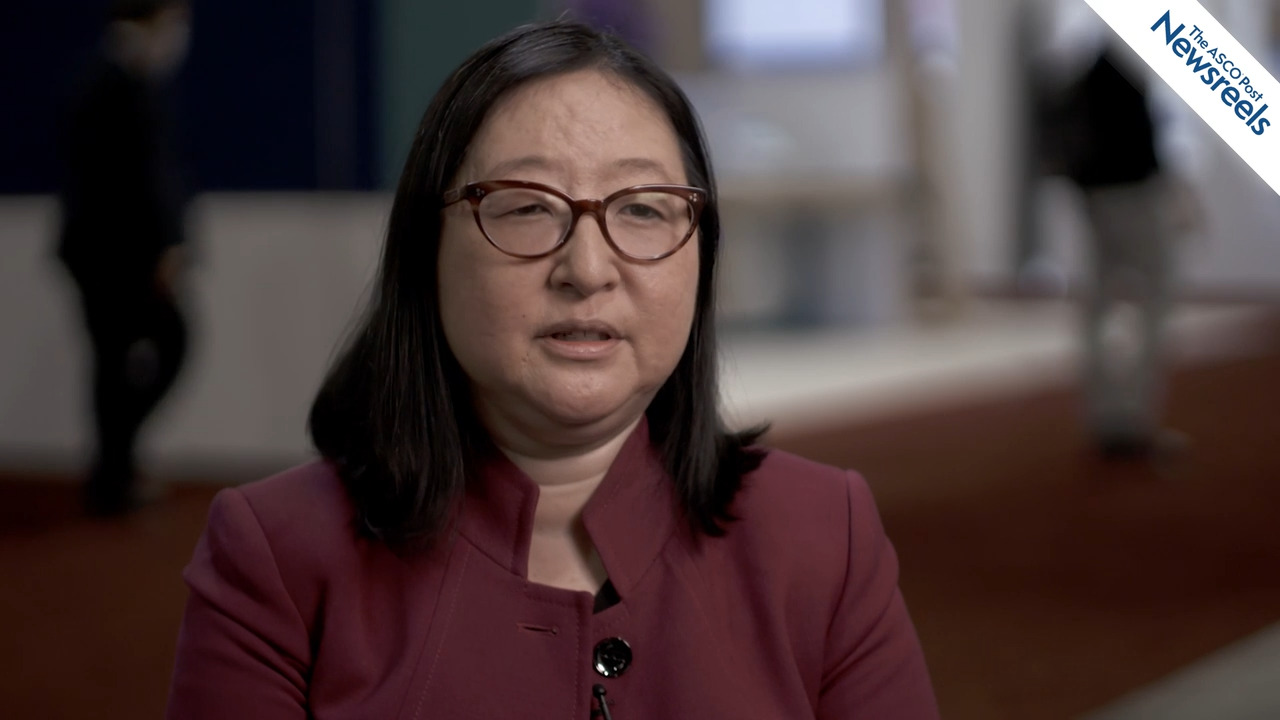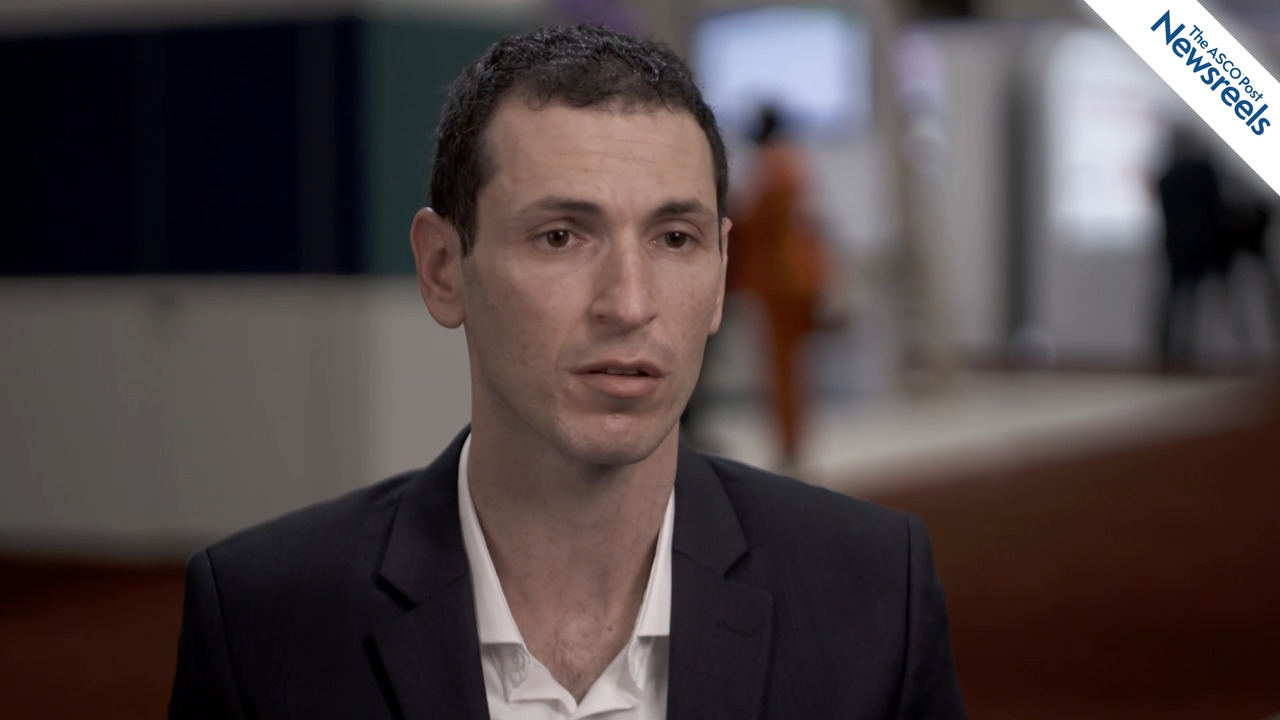Nikhil C. Munshi, MD, PhD, on COVID-19 Vaccine Effectiveness in Patients With Multiple Myeloma
2021 ASH Annual Meeting & Exposition
Nikhil C. Munshi, MD, PhD, of Dana-Farber Cancer Institute, discusses the findings from a large nationwide Veterans Affairs study, which showed that, for patients with multiple myeloma, the effectiveness of the COVID-19 vaccine is reduced, likely due to patients’ immunosuppression. Dr. Munshi describes what next steps should be taken (Abstract 400).
The ASCO Post Staff
Manali Kamdar, MD, of the University of Colorado Cancer Center, discusses phase III results from the TRANSFORM study, which suggest that lisocabtagene maraleucel, a CD19-directed CAR T-cell therapy, improved outcomes with a favorable safety profile and may be a potential new standard of care for second-line treatment of patients with relapsed or refractory large B-cell lymphoma (Abstract 91).
The ASCO Post Staff
Joe Schroers-Martin, MD, of Stanford University, discusses his latest study findings, which show that follicular lymphoma driver mutations are detectable in blood and saliva years prior to a clinical diagnosis. These data build on previous work and suggest that researchers may be able to stratify people at elevated risk of clinical malignancy (Abstract 709).
The ASCO Post Staff
Paolo Ghia, MD, PhD, of the Università Vita-Salute San Raffaele and IRCCS Ospedale San Raffaele, discusses disease-free survival results from the measurable residual disease cohort of the phase II CAPTIVATE trial. This multicenter trial focuses on first-line ibrutinib plus venetoclax in patients with chronic lymphocytic leukemia (Abstract 68).
The ASCO Post Staff
Eunice S. Wang, MD, of Roswell Park Comprehensive Cancer Center, discusses phase III results showing that gilteritinib and azacitidine led to significantly higher composite complete response rates in patients with newly diagnosed FLT3-mutant acute myeloid leukemia who are ineligible for intensive induction chemotherapy. Overall survival was similar to that of azacitidine alone (Abstract 700).
The ASCO Post Staff
Roni Shouval, MD, PhD, of Memorial Sloan Kettering Cancer Center, discusses his findings, which show, for the first time, that TP53 alterations are a valuable prognostic and potentially predictive marker in patients with large B-cell lymphoma who receive CD19–CAR T-cell therapy. Gene-expression profiling suggests that TP53 alterations result in an immunosuppressive tumor microenvironment and impaired apoptosis signaling, which could lead to decreased CAR T-cell therapy efficacy (Abstract 710).
